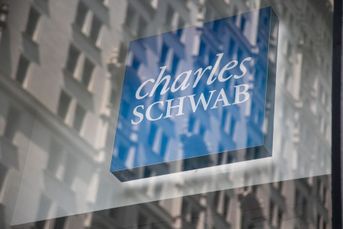Finra to step up surveillance of stock exchanges in 2011
Responding to increased fragmentation of markets, Finra is revamping the way it scans for abuses such as insider…
Responding to increased fragmentation of markets, Finra is revamping the way it scans for abuses such as insider trading, chief executive Richard Ketchum said.
After adding NYSE Euronext Inc.'s markets to its oversight responsibilities in June, the Financial Industry Regulatory Authority Inc. now conducts market surveillance for the stock exchanges on which 80% of U.S. trading occurs. While the regulator now operates separate databases for trading-related information for securities listed on the New York Stock Exchange and The Nasdaq Stock Market Inc., the goal is to “pull that together” in 2011 in a coordinated effort to spot manipulative and illegal activity across venues, Mr. Ketchum told reporters last month.
With stock activity dispersed across as many as 50 venues, including exchanges, electronic communication networks, dark pools and the trading desks of broker-dealers, there are many opportunities for market manipulators to elude regulators, he said. Dark pools are private venues that match orders without displaying quotes. Surveillance must aggregate data across markets to identify patterns and related trading, Mr. Ketchum said.
“Putting all that information together so people can see relationships” across markets is critical, he said. “That will come as our major task in 2011.”
“FULLER PICTURE’
Data for Nasdaq-listed securities and over-the-counter or off-exchange trading reside in one database, while NYSE and NYSE Arca information is in another, said Finra vice chairman Stephen Luparello. Combining two systems will give regulators a “much fuller picture” of markets, he said.
Finra conducts market surveillance, investigations, enforcement activities and regulation of member firms for NYSE, Nasdaq and other exchanges. It does “less than the complete sweep” for BATS Global Markets and Direct Edge Holdings LLC, with those exchange owners managing some of that business, Mr. Luparello said.
“We think that's less than optimal,” he said. Finra would like to consolidate the data so its surveillance can operate across all 13 U.S. exchanges.
UNIFORM DATA
Finra received approval from the Securities and Exchange Commission in November to expand the information it collects for orders and transactions in Nasdaq-listed securities to those listed on other exchanges, including NYSE. The broader Order Audit Trail System will provide uniform data for all securities, enabling Finra to compile aggregated information that may be similar to the so-called consolidated audit trail the SEC proposed in May.
A consolidated-audit-trail system that comprises all trading-related data for orders would allow regulators to reconstruct market events such as the May 6 plunge that erased $862 billion in equity value in 20 minutes, and would strengthen surveillance, the SEC said when it presented its plan.
Expanding OATS would improve the data available to regulators in the coming months, Mr. Ketchum said. A separate proposal by the SEC to track the buying and selling by individuals and firms executing more than 2 million shares a day would help regulators understand what active traders do, he said. That system would also apply to traders processing $20 million in equities a day or $200 million in a month.
Finra identifies many of the insider trading cases it investigates based on alerts from an electronic surveillance system it uses called Sonar, according to Cameron Funkhouser, executive vice president and head of Finra's office of fraud detection and market intelligence. The system tracks news about publicly listed companies and identifies potential instances of abusive trading. Older investigations may also be incorporated into an analysis as the regulator looks for patterns over time.
Finra is conducting between 200 and 400 active insider-trading investigations, Mr. Funkhouser said. It has referred up to six “serial insider trading rings” to the SEC or other law enforcement agencies in the past two years, including one that led to the SEC's Dec. 7 action against an information technology manager at a Delaware law firm and his brother-in-law, he said.
Finra in 2011 will also focus on manipulative activity that relies on algorithms or speed-focused automated trading strategies that submit buy and sell orders to marketplaces based on price data, Mr. Ketchum said.
TRILLIUM BROKERAGE
“Most high-frequency-trading activity is legitimate,” he said. “It doesn't involve manipulative activity and operates entirely within the law.” Still, “we do see instances where it's not,” he said. His organization sees activity that ranges “from things that might be troubling to things that are fraud,” he said.
An example of the type of activity Finra will pursue more aggressively is the case it announced in September against Trillium Brokerage Services LLC, a proprietary-trading firm that engaged in activity aimed at inducing other firms to respond to its bids and offers, Mr. Ketchum said. Trillium employed manipulative practices that high-frequency traders' computers were likely to identify as market-moving activity, prompting them to react to the firm's quotes, he said. Finra's sanctions against the firm and 11 employees totaled $2.3 million, according to a notice.
That's a “good example of what you're going to see in 2011 with respect to market surveillance,” Mr. Ketchum said. “We redesigned our surveillance to be much more focused on this type of activity.”
Learn more about reprints and licensing for this article.








